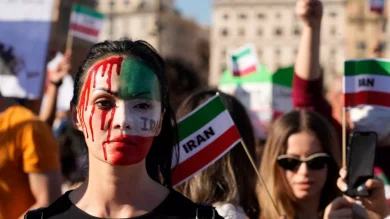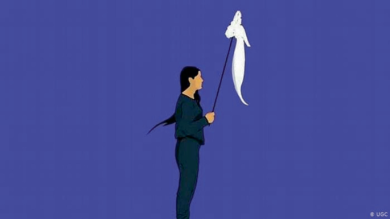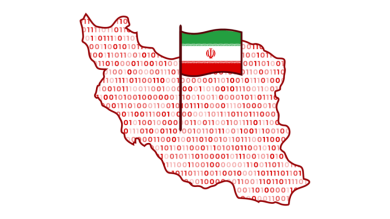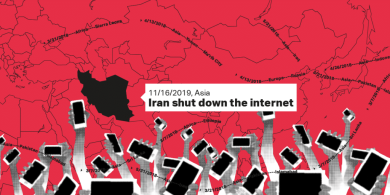In international politics, sanctions are often treated as the gold standard of nonviolent pressure. They are designed to weaken regimes, punish human rights violations, and contain global threats. But in the case of Iran, they’ve done something else too: made the Islamic Revolutionary Guard Corps (IRGC) richer, more powerful, and more deeply entrenched in the very economy they’re supposed to undermine.
This is the paradox of Iran’s sanctions era — a time when the Iranian people suffer under economic collapse while the IRGC thrives in black markets, sanctions loopholes, and unregulated sectors. Far from dismantling the regime’s repressive machinery, sanctions have helped the IRGC create an empire in the shadows.
It’s time we reexamine this system, not to remove pressure from Tehran — but to make it smarter, more targeted, and less exploitable by those who profit from oppression.
1. The IRGC’s Economic Takeover Began Long Before Sanctions
Long before the word “sanctions” became a fixture in headlines, the IRGC had already begun its quiet conquest of Iran’s economy. Following the devastating Iran-Iraq War in the 1980s, the regime handed large parts of the country’s post-war reconstruction to the IRGC.
The result? A military force became a construction conglomerate.
The crown jewel of this transformation was Khatam al-Anbiya Construction Headquarters, an IRGC-controlled engineering firm. It now dominates major sectors including oil, gas, roads, water, rail, and telecommunications. It receives billions in no-bid government contracts and operates with total opacity.
By the time nuclear sanctions began intensifying in the 2000s, the IRGC was no longer just a branch of the armed forces — it was a state within a state, with financial interests spanning nearly every sector.
2. Sanctions Weakened the Civilian Economy — But Empowered the IRGC
As Western sanctions mounted, Iran’s economy fragmented. The private sector was squeezed. International investors fled. Ordinary citizens saw prices skyrocket, savings evaporate, and job prospects vanish.
But in the chaos, the IRGC saw opportunity.
Here’s how sanctions helped them:
• Privatization on paper, militarization in practice: When the government was forced to “privatize” major industries, many were quietly handed to IRGC front companies.
• Black market dominance: The IRGC leveraged its control over ports, customs, and smuggling routes to run a thriving sanctions-evading shadow economy.
• Currency arbitrage: As the rial fluctuated wildly, IRGC-linked actors made massive profits by manipulating currency exchanges and import/export schemes.
• Contract monopolies: With foreign companies banned or afraid to operate, IRGC firms filled the vacuum with inflated pricing and minimal competition.
Sanctions, in effect, became the oxygen mask for a regime that should have been gasping for air.
3. Port Mafia: How the IRGC Profits at Iran’s Borders
Take the example of Bandar Abbas, a major Persian Gulf port where billions in trade pass through annually.
Although theoretically under government control, much of the port’s logistics infrastructure is overseen by IRGC affiliates. From customs clearance to cargo inspections, the IRGC has built a parallel system of “unofficial” oversight — a network of bribes, extortions, and black-market shipments.
Through this system, the IRGC can:
• Smuggle sanctioned goods (like industrial parts, fuel, or technology)
• Export sanctioned items (like oil via “ghost tankers”)
• Import luxury goods for regime elites, despite bans
• Tax informal traders and private importers
The result is two economies in Iran: one for the people — burdened by scarcity and inflation; and one for the regime — powered by corruption and control.
4. Shell Companies, Global Smuggling, and Fronts
The IRGC does not operate in a vacuum.
It uses front companies, cut-outs, and transnational networks to maintain access to global markets — even under tight sanctions.
Known tactics include:
• Shell companies in the UAE, Malaysia, and Turkey that launder money or facilitate oil sales.
• Use of cryptocurrencies to move value across borders without trace.
• Ghost tankers and ship-to-ship transfers to sell Iranian oil under foreign flags.
• Dual-use imports (e.g., medical equipment that can also be used for surveillance or crowd control).
These tactics are not hypothetical. They are documented by financial watchdogs, UN reports, and leaked intelligence files.
And behind many of them, you’ll find one common element: IRGC-linked actors pulling the strings.
5. Who Profits from Oppression?
While the IRGC expands its empire, ordinary Iranians suffer. The economic disparity is staggering.
Winners:
• IRGC generals with luxury properties abroad
• Regime insiders running monopolies on food, gas, and construction
• Sanctions profiteers in charge of black-market access
• Companies like EIKO and Astan Quds Razavi, deeply embedded in IRGC patronage
Losers:
• Teachers, nurses, and workers facing unpaid wages
• Youth facing 40%+ unemployment
• Women and minorities disproportionately harmed by poverty
• Families who can’t afford medicine, rent, or basic food
In this shadow economy, the poor pay for the power of the few.
6. The IRGC’s Oil Game: Selling Crude, Funding War
Iran’s oil industry is officially managed by the National Iranian Oil Company. In practice, it is increasingly carved up among IRGC-linked firms.
Sanctions on oil exports have driven sales underground. But the IRGC has stepped in to operate covert supply chains, funnel oil through third-party nations, and reroute funds to:
• Hezbollah in Lebanon
• Hamas in Gaza
• Houthi militias in Yemen
• Pro-Assad forces in Syria
Thus, every barrel smuggled through IRGC channels becomes a bullet in a proxy war.
7. How to Fight the Shadow Empire
Sanctions are not inherently the problem — it’s the design, enforcement, and loopholes that allow the IRGC to thrive.
Smarter strategies should include:
• Targeting front companies with precision sanctions (not just state institutions)
• Public registries of IRGC-linked assets, companies, and shell networks
• Whistleblower protections for insiders leaking financial documents
• International coordination on maritime tracking, cryptocurrency regulation, and banking surveillance
Activists, journalists, and analysts have already begun building these tools. What’s needed is political will.
8. Terrorist Designation: Not Just Symbolic
Countries like the U.S. have already designated the IRGC as a foreign terrorist organization (FTO). Canada has taken steps toward full designation, and the EU Parliament has supported similar motions.
Such designations matter because they:
• Criminalize support and transactions with IRGC fronts
• Open new avenues for civil and criminal lawsuits
• Force companies and financial institutions to conduct enhanced due diligence
• Signal to global allies that business with the IRGC is not just unethical — it’s illegal
This is not a symbolic act. It’s economic warfare on the regime’s financiers.
9. The Role of Civil Society and the Diaspora
Iranian activists, economists, and whistleblowers around the world are helping identify IRGC front companies and document corruption. This decentralized intelligence is vital.
Tools being used:
• Open-source investigations (e.g., ship tracking)
• Data leaks from inside Iran
• Social media campaigns targeting IRGC economic links
• Lawsuits and sanctions petitions in Western countries
This movement shows that you don’t need to be a politician to dismantle a regime’s financial power.
Conclusion: Pressure with Purpose
The IRGC’s economic empire is built on loopholes, fear, and false promises. It thrives when pressure is blunt, but falters when pressure is smart, targeted, and transparent.
The goal isn’t to lift sanctions. The goal is to redirect their impact — away from civilians and toward the true architects of repression.
The IRGC must be:
• Isolated financially
• Designated legally
• Dismantled structurally
• Held accountable internationally
Join Our Newsletter!
Stay informed with the latest updates, news, and ways to take action in the fight for justice and global security. Sign up now to get updates delivered straight to your inbox!





